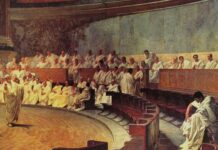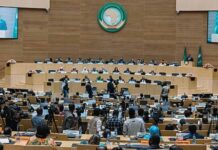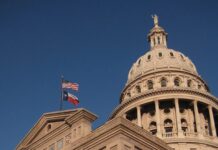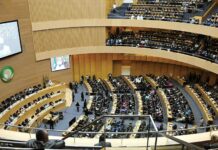
The major story over the last few years has been the increase in the involvement of Generation Z in politics and government as we have come of age. Much like myself, large swaths of Generation Z are coming to the end of their formal education from high school and university and entering into an inadequate job market with less optimistic prospects for the future compared to our past generations. Even Gen Z youth in developed countries have been subject to the same woeful economic conditions typically felt by those from the Third World and developing nations more broadly.
However, unlike in developed nations, the root cause of much of the disastrous economic conditions felt in Third World nations comes down to the endemic corruption and self-serving nature of our governments. So while bad economic conditions are affecting all of us, they do not affect us in equal measure. A Gen Z European’s economic hardship may involve them not making enough money to afford to start a family or move out of their parents’ house, whereas a Gen Z person in the Third World struggles to find any kind of employment whatsoever.
Unlike in the developed world, where there at least exists the infrastructure necessary for business to operate, in the Third World, much of our government revenue that is supposed to be directed towards developing our nation’s infrastructure is instead embezzled by politicians and bureaucrats. The poverty that exists in our countries is often not due to a lack of capital or even skill, but rather the decisions of corrupt regimes more concerned about enriching themselves than they are about developing our nations.
That then poses the question: at what point does it become necessary for an uprising or revolution? Currently, at the time of writing this article, there have been several Gen Z-led anti-government protest movements across the developing world. And over the last few years, we have seen some of these protests actually lead to the toppling of the regimes that had been the subject of the protest movement, such as in Sri Lanka, Bangladesh, Gabon and more recently in Nepal and Madagascar. We have also seen major protests in Kenya, Serbia, Indonesia, the Philippines and Morocco, among other nations.
The uprising we witnessed in Nepal, in particular, is one that seemed to have caught the attention of many. The world witnessed on social media as Nepali youth angered by corruption and mismanagement of public funds stormed their nation’s parliament, causing the government to collapse and politicians to flee. Homes of politicians were burned down, and videos of Nepal’s finance minister being beaten and chased down the streets of their capital by angry Nepali youth spread on social media. It was a Gen Z-led revolution, streamed live for the entire world to see.
On social media, these images were met with praise by many. Many celebrated the Nepalese youth for rising up against their government and wished that similar actions could be taken in their countries. Among Nigerians in particular, there were many praising the Nepalese, wishing that a similar kind of uprising may take place in Nigeria against our government as well. The reason this resonated so much with so many Africans is that many of those same grievances felt by the Nepalese youth were the same felt by many across Africa as well.
There are many aspects of this revolution make it understandable why so many viewed it in such a positive manner. The fact that it was led by Gen Z youth is one big factor. The fact that Nepalese politicians found themselves at the mercy of hundreds of protesters and had their property destroyed is another. As it represents an inverse to the traditional way that our governments work across the Third World, where our politicians operate more like royals looking down at us from their palaces, demanding our ultimate respect and submission.
The fact that ordinary Nepalese citizens were able to, at that moment, exact a form of revenge and take their pound of flesh (literally in the case of the finance minister) against the regime they saw as corrupt and self-serving. The outpouring of praise for this uprising speaks to a spirit of a kind of revolutionary vengeance that exists among many in the global south, disillusioned with the corrupt nature of our governments. More than that, it speaks to a desire among many to just completely do away with our current systems of government and start from scratch.
However, while this desire for change is commendable, it is also important that we be sober-minded in our pursuit of that change. It is one thing to look at the kind of uprisings we have seen in Nepal, Sri Lanka or even Bangladesh, with exhilaration, but it is another thing to truly experience these moments and their consequences of these uprisings in the years and decades to follow.
A common thread witnessed among these massive protest movements has been their leaderless nature. There has often not been a single leader, political party/movement or even general ideology behind many of these movements. The general theme of many of the protest movements has been anti-corruption or anti-government in nature. This can have its benefits in that there isn’t typically a single individual or groups of individuals martyred as a result of their speaking out; however, it can also have the negative side of no clearly defined goals to achieve.
It is easier to decry corruption than it is to actually put into place the mechanisms needed to truly root it out from our governments. Without any clear leader, the question then arises of who will step forward to take the reins of power, once the current government has been overthrown. Without any clear leader, it becomes easy for a new government to take power that is no different from the one that has just been ousted. And for the cycle of corruption and mismanagement to persist.
One clear example of this is the 2023 coup in Gabon. Following the 2023 elections, which opposition leaders had claimed were fraudulent, there had been mass protests against the rule of President Ali Bongo. Protesters were demanding an end to the Bongo Dynasty that has ruled Gabon since 1967. Amid these widespread protests, the military would depose President Bongo in a coup d’état. This year, Brice Oligui Nguema would be elected President of Gabon with 90% of the vote after serving as interim president from the time of the coup to the election this April.
In a truly democratic election, it would be virtually impossible for any individual to legitimately win with 90% of the vote, meaning the goal of greater democratic reforms that protesters had demanded has not been materialised. Gabonese opposition leaders would likewise decry the undemocratic nature of these election results. Moreover, President Brice Nguema is himself a member of the Bongo family, meaning the Bongo dynasty that has ruled Gabon for so many decades, which protesters had been demonstrating against, still maintains its grip on power.
To really achieve change in our countries, it is not enough to overthrow one government only for another to be installed with no noticeable change in the status quo. There is no point if all we are doing is replacing one corrupt and unaccountable government with another. To achieve real change, there needs to be a fundamental rethinking of the way in which our governments are supposed to function. When reforms are put in place, they need to be reforms that lead to better governance structures and contribute to the long-term sustainability of our nations.
They need to be reforms that lead to greater transparency and greater accountability mechanisms available to the public. Meaning genuinely democratic systems of government where the government can be held accountable for its actions by the public. Not the pretend elections that are held in our countries every few years that only function to give our governments the veneer of democratic legitimacy, but genuine, free and fair democratic elections.
It would mean that the majority of our public budgets can no longer be pilfered in large amounts by elected officials and public sector workers, and is instead actually invested in our countries’ infrastructure. The culture of people entering government for the sole purpose of enriching themselves off of public funds must come to an end, in favour of a culture of genuine service to our nations on the part of public sector workers. There would have to be a generational shift in the leadership of our nations dedicated to implementing these reforms to better our nations.
The sobering reality is that meaningful change is unlikely to happen all at once. Without a fundamental restructuring of the government and a shift away from our entrenched political establishments, such sweeping reforms will always be improbable in a single uprising. Instead, this kind of progress will emerge more effectively through a sustained, generational commitment to democratic ideals. This journey will involve not only protest and activism, but also active participation in the political process, in strategic legal battles, and in the power of global solidarity.
Instead of seeking the fleeting gratification of revenge against the political establishments that have corrupted our governments – an approach that may or may not lead to genuine reform – we should pursue the deeper, long-term fulfilment of building free, just, and sustainable nations. This path will not only benefit ourselves, but also our future generations. While we may not always get our “pound of flesh” from the corrupt elite, the promise of lasting prosperity and progress will be the true reward.











